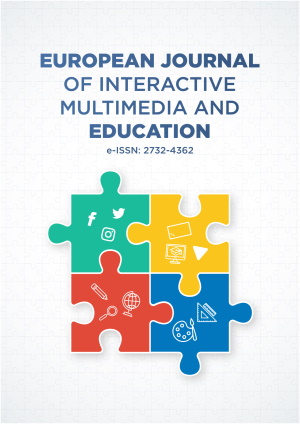Keyword: online learning
4 articles found.
Research Article
Online Learning Resources, Challenges, and Coping Strategies of Low-Fee Private Schools in Ghana During COVID-19 Pandemic
EUR J INTERACT MULTIMED ED, Volume 3, Issue 2, July 2022, Article No: e02214
https://doi.org/10.30935/ejimed/12518Research Article
Perceptions Towards Adoption of Online Learning Under COVID-19 Pandemic Among Library and Information Science Students
EUR J INTERACT MULTIMED ED, Volume 3, Issue 2, July 2022, Article No: e02210
https://doi.org/10.30935/ejimed/12271Research Article
Digital Learning in Higher Education: A Road to Transformation and Reform
EUR J INTERACT MULTIMED ED, Volume 3, Issue 1, January 2022, Article No: e02206
https://doi.org/10.30935/ejimed/11493Review Article
Self-Regulated Learning In A Massive Open Online Course: A Review of Literature
EUR J INTERACT MULTIMED ED, Volume 1, Issue 2, July 2020, Article No: e02007
https://doi.org/10.30935/ejimed/8403
